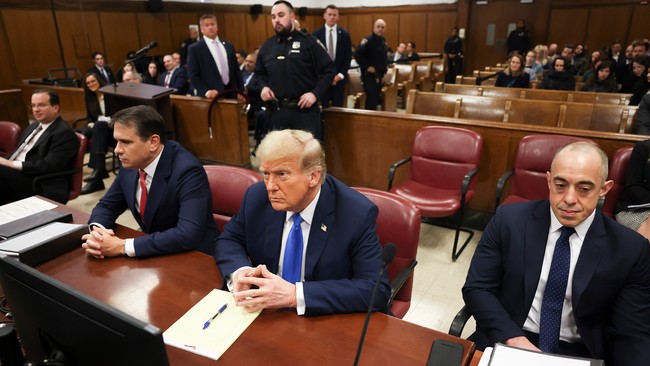
It was a bad week for Alvin Bragg and his case against Donald Trump. There’s no other way to put it.
For starters, Judge Juan Merchan, who is overseeing the case, may have made a critical error that could reverse the Trump verdict upon appeal by allowing prosecutors to make certain arguments.
As I reported earlier, “Last week, during an appearance on ‘Fox & Friends,’ GWU law professor Jonathan Turley told Fox News that Merchan made a mistake by allowing Bragg’s prosecutorial team, which former Biden administration official Michael Colangelo is leading, to say unequivocally that Trump was involved in federal election law violations.”
“That jury has now been told repeatedly that there are federal election crimes here, strongly suggesting that the payment to Stormy Daniels did violate federal election laws,” Turley explained. “That’s just not true.”
He cited the recent overturning of Harvey Weinstein’s conviction for similar reasons as precedent.
But even the actual allegations against Trump are falling apart. Keith Davidson, the lawyer representing adult film actress Stormy Daniels, testified that the $130,000 payment to Daniels should not be construed as “hush money” but rather as a legitimate “consideration” payment. Davidson also testified that Trump’s former lawyer, Michael Cohen, was “despondent” when he didn’t get a White House job after Trump won the presidency in 2016.
And then there was the testimony of former Trump aide Hope Hicks. Many in the media tried to paint her testimony as damning for Trump, but even she undermined the allegations against him.
Fox News legal analyst Gregg Jarrett called Hicks’ testimony an “epic miscalculation” by the prosecution. “The moment cross-examination began, their misbegotten case against the former president began to collapse,” he explained.
Hicks, who served as press secretary during the 2016 presidential campaign, explained that Trump’s motive for suppressing salacious stories was to protect his wife, Melania. “Absolutely…I don’t think he wanted anyone in his family to be hurt or embarrassed about anything on the campaign. He wanted them to be proud of him.”
According to Jarrett, Hicks’ account effectively dismantled Bragg’s central accusation against Trump regarding the payment to Stormy Daniels. Rather than supporting the notion that Trump sought to unlawfully influence the election by paying for her silence, Hicks’ testimony aligns well with federal investigations that found no evidence of criminal activity or violations of campaign finance laws. It underscores the existence of an alternative purpose for the non-disclosure agreement that Daniels signed.
Hicks also blasted Bragg’s star witness, Michael Cohen.
“He used to like to call himself Mr. Fix-It, but it was only because he first broke it,” she testified.
“It was foolhardy for Bragg’s legal team to call Hicks,” Jarrett observed. “A rank amateurish mistake.”
Jarrett continued, “Her testimony was redundant and unnecessary. But under the theory that no dead horse will be left unbeaten, prosecutors seemed determined to have her tell the jury what they already knew.”
With Hicks on the stand, prosecutors dwelled interminably on the infamous “Access Hollywood” tape. It has no bearing on the case, mind you, except to smear Trump with irrelevant and prejudicial information. Merchan’s ruling to permit it as admissible evidence is a reversible error, just as it proved to be in the recently dismissed sex crimes conviction of Harvey Weinstein.
Between Merchan’s mistakes and the testimony that has completely destroyed Bragg’s case, the jury should easily decide in Trump’s favor. Of course, this is no ordinary trial. The partisan prosecutor, the partisan judge, and the partisan jury, all stack the deck heavily against Trump here, and it’s hard to say whether the jury will be objective enough to acknowledge that Bragg’s case has imploded.











